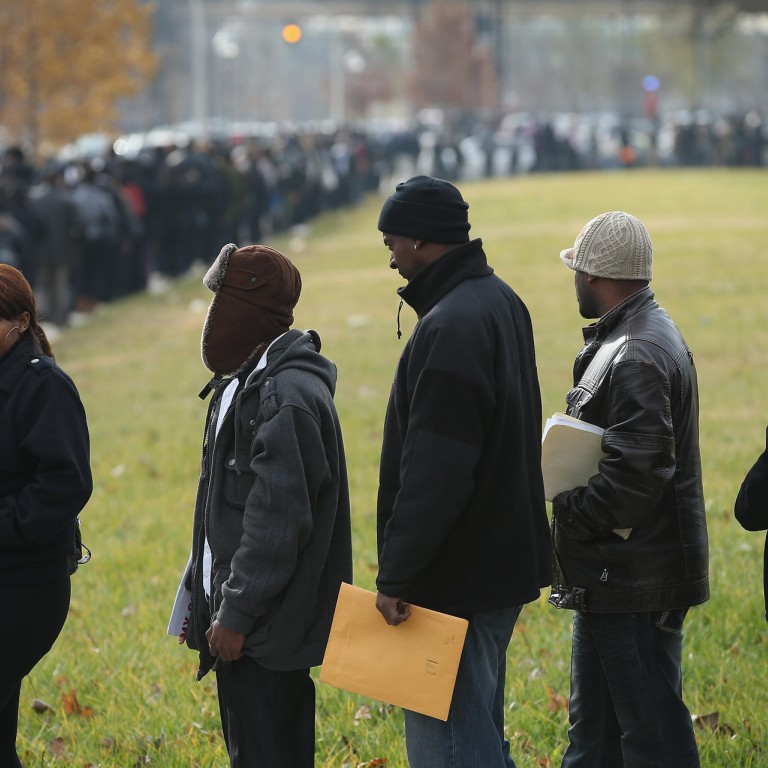
Black jobless rate nearly twice that of whites
Advances in education fail to hide stark reality in 50 years since Martin Luther King's speech
Fifty years after the "dream" of racial equality invoked by Martin Luther King at the March on Washington, blacks still suffer the most unemployment.
Government statistics show the overall US unemployment rate stood at 7.4 per cent in July.
But while whites had a jobless rate of 6.6 per cent last month, the rate was nearly double for blacks at 12.6 per cent.
By comparison, the Hispanic, or Latino, minority fared better, with 9.1 per cent unemployed.
Asian-Americans were the least affected by the woes in the US labour market with only 5.7 per cent out of work.
"Discriminations against African-Americans are still very pervasive. It's a major force of the economy," said Heather McGhee, vice-president of Demos, a Washington-based think tank on equal rights.
The yawning gap between majority whites and blacks is nothing new and has persisted through periods of economic expansion and recession.
Since 1972 the jobless rate for blacks has held at roughly double that of the entire workforce.
Even at the end of 2000, amid full employment in the US, when the jobless rate was 3.9 per cent, 7.3 per cent of black workers were unemployed.
The weight of this joblessness has pushed blacks into the majority of the 27.6 per cent of Americans living in poverty, although they represent only 13 per cent of the population of some 316 million.
The statistics hide the fact that gains have been made since King's landmark call for equal rights and opportunities in 1963. "There has been a lot of progress," McGhee said. "We have to make sure to not act as if the story of black America is a tragic one."
Nearly 50 years after segregation was ruled illegal in 1964, Barack Obama is the first black president and blacks' access to education has improved enormously, she noted.
According to McGhee, 86 per cent of blacks have attended high school, compared with 38 per cent in 1963, and 20 per cent are going to a college or university, compared with only 5 per cent that same year.
However, she said, the effort to bridge the gap with whites has flagged. "We are suffering because we took our foot off the gas on integration," she said.
Progress in education has not been enough to change the trajectory of joblessness, said a University of Chicago economics professor Ioana Marinescu.
"Only a part of the gap is explained by differences in the level of education," she said.
Experts say negative stereotypes about blacks remain in the undercurrents of US society, but in different forms than in the past. "Prejudice and bias have become unconscious," said McGhee.
"It has become out of fashion to explicitly say that you don't want to hire a black person. We know how much these implicit biases influence people who are making decisions."
